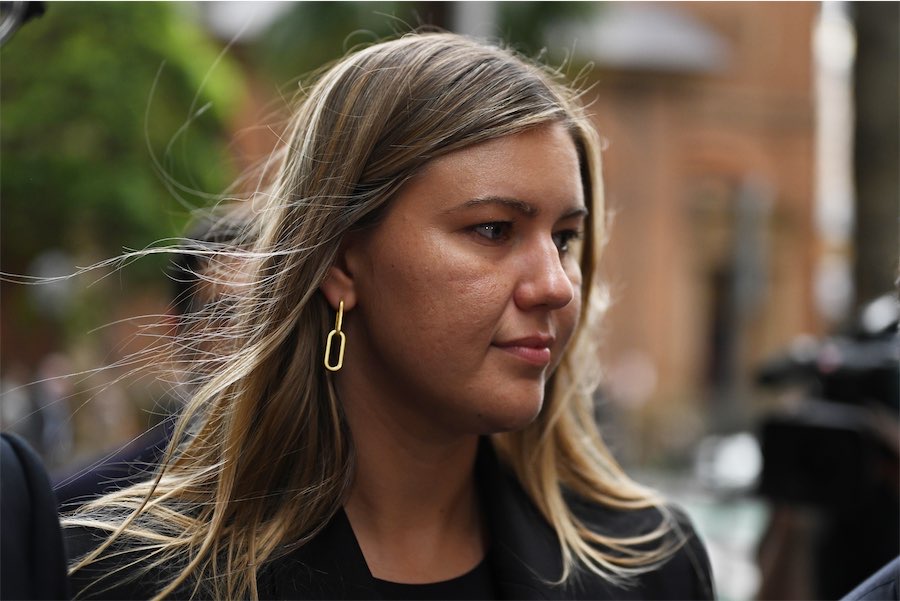By Michelle Grattan, University of Canberra
In deciding to vote against the restoration of fuel excise indexation, the Greens have let the perfect be the enemy of the good. They’ve gone against their own policy, and appeared to be all over the place in the process.
The handling of the measure will reinforce the criticism of Christine Milne’s leadership, both inside and outside the Greens.
Milne had flagged initially that the Greens would support the indexation – worth about $2.2 billion over the forward estimates – although it was quickly obvious they objected to the funds all being used for road building.
They could have sought to knock out the hypothecation. It is surely likely that at the end of the day the government would have worn that, given significant money is involved, so many of its budget measures are under threat, and Clive Palmer is opposed (meaning there is no other dancing partner).
Milne sounds unconvincing about why the Greens would not have a try, saying Tony Abbott and Joe Hockey had indicated they were taking an all-or-nothing approach. Of course they would say that – it doesn’t mean it would be their final stand.
She also says the government would put the money into roads anyway, whatever the fate of the hypothecation provision. Perhaps, but even without the excise funds, the spending on roads may remain the same.
One reason Milne looked weak in her post-party meeting news conference is that the Greens have been ambivalent and divided over the issue – whether to seek a compromise or oppose outright. Milne’s initial inclination towards the measure became untenable as time passed and internal opposition firmed.
The party meeting debated both options but the mood was obvious.
The Greens are obsessively anti-Abbott at the moment, reluctant to give him anything. This may be popular with their base. But the cost is their own credibility, especially with more centrist supporters or potential supporters, who want a party that can actually deliver on something – particularly, when it gets the chance, policies it believes in.
Bringing back indexation on fuel is quite a big deal. It is not the substantial anti-carbon measure that Abbott tried to make out in his talks with President Obama, and certainly the motive for it was money, not climate change, as Abbott made clear in Parliament on Tuesday.
But it is worth having in the suite of climate policies. For the Greens to lose the chance to do something to which they were committed is to suggest they are more interested in gestures than achievements.
It was the same story with emissions trading. If the Greens had been willing to play ball, the Rudd government’s ETS legislation could have been passed when in 2009 dissident Liberals crossed the floor in the Senate. But the Greens stayed pure (they argue it was Rudd who wouldn’t play ball).
If the ETS had been legislated then, and carbon pricing established, the debate would have changed and there would have been a good chance the scheme would have remained in place.
The next test for the Greens will be paid parental leave. Abbott has been forced to pare his plan back; it is now close to the Greens policy. But as with fuel excise, there are internal differences, with some Greens not wanting to facilitate it for Abbott, and probably there will be pain ahead. (As with fuel, Abbott doesn’t have any other potential Senate support for PPL.)
Tuesday’s Essential poll contained some sobering figures for the Greens.
Fewer than three in ten (28%) of voters believe the Greens holding the balance of power in the Senate has been good for Australia, while 37% think it has been bad.
It might be argued that when a small party gets in a position to do something (as the Greens were in spades during the hung parliament) it inevitably makes enemies – which is all the more reason to score runs when possible.
The Greens like to claim a victory in forcing Julia Gillard’s hand over carbon taxing. But this is a pyrrhic win – because it is about to be dismantled.
The poll also asked people their opinions of Milne (and Clive Palmer, but that’s another story). Some of the findings are a wake up call. Only 41% think she understands the problems facing Australia; just 30% say she is visionary. Nearly half (48%) think she is narrow minded; more than half (51%) believe she is out of touch with ordinary people.
While she is seen as (and is) intelligent and hard working, Milne is not cutting through as sufficiently strong on the nation’s needs or the people’s concerns.
![]()
Michelle Grattan does not work for, consult to, own shares in or receive funding from any company or organisation that would benefit from this article, and has no relevant affiliations.
This article was originally published on The Conversation.
Read the original article.
Who can be trusted?
In a world of spin and confusion, there’s never been a more important time to support independent journalism in Canberra.
If you trust our work online and want to enforce the power of independent voices, I invite you to make a small contribution.
Every dollar of support is invested back into our journalism to help keep citynews.com.au strong and free.
Thank you,
Ian Meikle, editor





Leave a Reply